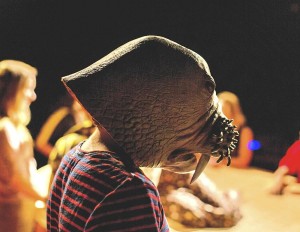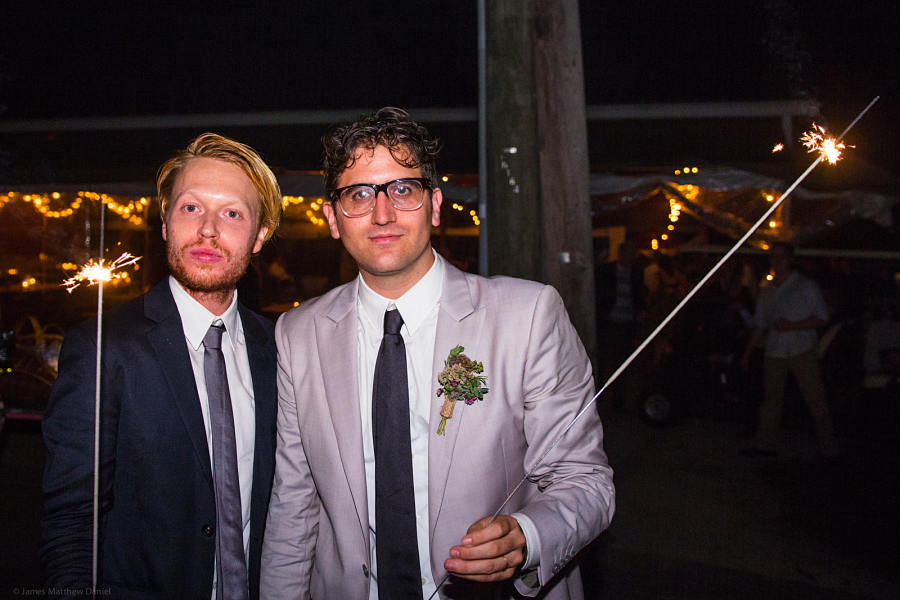When Brian Rady was a sophomore at Northwestern University, Jeremy Bloom cast him in a play that Bloom had written. “I pretty much fell in love with him then,” says Rady.
While Bloom recalls the start of their romance differently—he remembers suggesting that Rady move to New York, and that Rady introduced him to the film Magnolia—both the love and the work have continued ever since. The two artists are now married, and together they make up the New York City-based Rady&Bloom Collective Playmaking.
“Ever since I saw Jeremy’s Leaves of Grass, we never do a project without the other’s input, intuition, imposition,” says Rady.
For their current project, The Upper Room, at the New Ohio Theatre through June 12, the duo partly took inspiration from their own honeymoon, which they celebrated in last fall.
“The seed of the idea for The Upper Room was planted when we took a trip to Maine immediately following our outdoor dance-y, drinky wedding,” Bloom recalls. “We stumbled on a sign on the side of the road,” Rady continues. “It said ‘The Good Life,’ with an arrow pointing ‘this way.’”

Never ones to miss out on an opportunity to be found in a bend in the road, the couple followed the sign and discovered Helen and Scott Nearing’s homestead, which Rady describes as “a hand-built seaside stone house with a garden, greenhouse and yurts.”
Bloom and Rady were so tickled and awestruck by the environs that they read the Nearings’ book about their six decades of “self-sufficient living,” also called The Good Life.
Then they took the concept one step further. “Our play The Upper Room takes place on a seaside homestead that’s been inherited by the characters who are insistent on staying there, even though the surging shore line threatens their sustainability,” says Rady. The roots of the play also center around the music of Catherine Brookman, who wrote an original score that Bloom describes as “glorious…simultaneously reverent and cool, simultaneously mythic and human.”
Bookman layers harmonies from a 10-person cast on top of another, creating a haunting and palpably human soundscape; it’s of a piece with the homespun, do-it-yourself charm that surrounds the company.
“Our approach is always like a game,” Bloom says. “Just rolling up your sleeves and making it happen.” Apart from sharing writing credits, with Rady serving as a performer and Bloom as a director, the lines of who does what in the company are constantly overlapping and shifting—as is their sense of what their next step should be. Says Rady, “We’re attempting to learn how to market, how to fundraise.” Bloom adds, “How to think…how to be!”
The challenges of working together are worth it for the husbands, who say they love sharing and developing a shorthand on both technical and conceptual levels. And while it can be hard to separate from the work, it can also be as simple as a bit of “HBO GO, a day trip or a day job depending on the mood,” says Bloom with an air of ease.
Do they have advice for others looking to do theatre with their loved ones? Rady and Bloom “yes and” each other.
“Drink the juice,” says Rady. “Dive toward the deep end,” says Bloom.
“It’s a good and easy way to make making art your whole life,” adds Rady before Bloom chimes in, “The best advice is three words written on the plastic packaging that a walrus mask we use in The Upper Room came in: ‘ENJOY YOUR LIFE.’”


